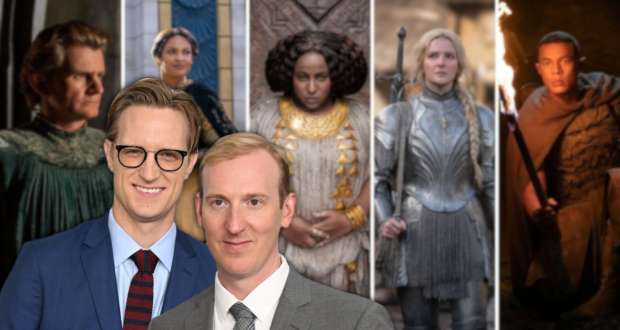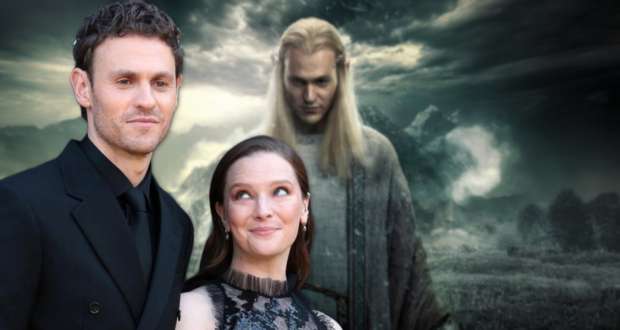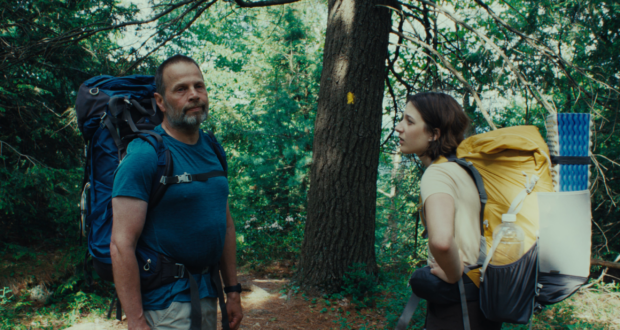Set in 1950s New York, a department-store clerk who dreams of a better life falls for an older, married woman.
Todd Haynes’ 2002 maniacally melodramatic Far From Heaven was soaked in Sirkian influence. You could see elements of Sirk’s Imitation of Life, All That Heaven Allows, and the drapery of Sirk’s brand of 1950’s filmmaking. But the subtler treat was the influence of David Lean’s achingly restrained British romance, Brief Encounter, one of my most favorite films. The bittersweet ending of Haynes’ Far From Heaven nods to Lean’s Brief Encounter, both films ending with heartbreak at a train station (and aren’t train stations just the perfect location for a heartbreaking romance film? Between Far From Heaven, Brief Encounter, and Leo McCary’s Make Way For Tomorrow, it seems like the saddest way to punctuate a doomed romance is to send the heartbroken participants speeding off to new, lonelier lives on a monochromatic, emotionless, phallic vehicle like a train).
After seeing the opening sequence to Haynes’ newest, Carol, me thinks he is after me heart. Carol opens with a sequence lifted straight out of Brief Encounter. We see Rooney Mara, as Therese, sitting across from Cate Blanchett, playing the titular character Carol, in a plush hotel dining room. Their conversation, of which we hear none of, is interrupted by an acquaintance of Therese’s. As the interruption becomes longwinded, Carol decides to leave, and as she gets up to go, she moves behind Therese and places a heavy hand on her shoulder, the look on Therese’s face spelling the dramatics of this seemingly benign touch.
The sequence and shot reappears at the end of the film, but the mise en scène originated so many years ago in Brief Encounter. Some may think this an unwise comparison to invite upon oneself, but borrowing from the greats is something we all should do, and at the very least ensures your name will be spoken alongside theirs. Besides, Haynes’ Carol is far more titillating than Brief Encounter. Carol subsists on subtle and infrequent caresses, their intensity heightened by expert camerawork and patience in storytelling. The kicker is how Haynes paints 1950s New York as being full of Christmas cheer and dominated by latent queer cheer.
Carol meets Therese in a department store. Therese works the counter helping Carol pick out a Christmas present for her daughter. When Therese suggests a train set over a doll—she was a “conductor” herself as a youngster—the lesbianism in the works is far from coy. Carol is a confident adulterer, cheating on her desperate and despairing husband (Kyle Chandler) whenever the mood strikes. Carol and her friend Abby (Sarah Paulson) talk about Abby’s potential conquest of a Rita Hayworth-ish redhead. All the men—Carol’s husband and Therese’s boyfriend (Jake Lacey)—are genuinely dumbfounded and just plain dumb without succumbing to being hateful, homophobic brutes. Women are checking out women everywhere. It’s a not-quite-so secret society. There isn’t a hint of fear in this forbidden love. Haynes puts us on our heels with a combination of confident storytelling and elegant camerawork—it’s all soft focus and bursting colors, with probing camera movements. A particular shot from Therese’s perspective goes from a close up of Carol’s alluring eyes to an extreme close up of her devilish mouth. It’s fantastically lustful.
Therese and Carol share witty and funny flirtations. With help from screenwriter Phyllis Nagy and Patricia Highsmith (whose novel, “The Price of Salt,” served as the source material for adaptation), Carol is a very funny movie. Mara’s take on Therese is something like Diane Keaton or Meryl Streep in one of those early Woody Allen flicks. Her inexperienced self and transformation into maturity are equally engaging and engrossing. Blanchett embodies the starlettes of bygone eras. She reminds me most of Bette Davis in All About Eve in the way her voice rings low, how she walks with a sway of slight drunkenness. Blanchett looked every bit this confident in her crowd pleasing, imposing performance in 2012’s Blue Jasmine. She encapsulates everything classic about Carol, and her performance is surely going to be one of those in contention come Oscar time (which hopefully won’t ruin it for the rest of us).
Carol is another example of how classic filmmaking is ruling 2015. Three of my favorite films from this year have been doused in the haze of classical Hollywood, and I am in some kind of heaven because of it. Christian Petzold’s Phoenix, Spielberg’s Bridge of Spies, and Haynes’ Carol are built from the foundation of classic filmmaking and just so happen to be three of my top films from this year. A custody battle plotline in Carol helps move the narrative and gives Blanchett more opportunity for speechifying and dramatic prowess, but it is forced and interruptive to the film’s flow. Carol goes on for perhaps five minutes too long. The ending shot to Petzold’s Phoenix (my top film of the year, so far) is perfect. It ended right where it should have, the last shot leaving us breathless and speechless. I got a little antsy waiting for Haynes’ inevitable (and disappointingly hopeful) finish to Carol. Doesn’t romance feel more impactful when it ends with heartbreak? Did Shakespeare teach us nothing? Regardless of the tone, the last shot of Carol is like a dessert that is just a tad too sweet and too big to finish comfortably (I always finish dessert, mind you, regardless of the pleading gurgles of my stomach). I want ultimate satisfaction before the check arrives, before the lights rise and the harshness of reality returns.
-
Acting - 8/10
8/10
-
Cinematography - 8/10
8/10
-
Plot/Screenplay - 6.5/10
6.5/10
-
Setting/Theme - 7/10
7/10
-
Buyability - 5.5/10
5.5/10
-
Recyclability - 4.5/10
4.5/10
























